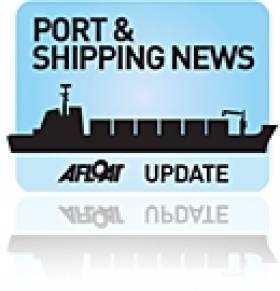Displaying items by tag: EU directive
Management Plan for Galway Bay Fisheries On Track
#GALWAY BAY - Galway Bay FM reports that the National Parks and Wildlife Service is to work with the Marine Institute towards completing a management plan for Galway Bay.
It comes two weeks after a group of oyster fishermen met Minister for Natural Resources Pat Rabbitte at Leinster House to voice their concerns over a cap on oyster dredging licences.
As previously reported on Afloat.ie, local fishermen in the inner Galway Bay-Clarinbridge area are concerned that their livelihoods are at risk after the European Union ruled that there is over-intensification of fishing at the oyster bed.
Only 13 dredging licences have been issued this year, and EU Directives prevent their further issue until a fisheries management plan is introduced.
Galway West Senator Fidelma Healy-Eames says steps are being made to get the management plan on track.
Reporting Inadequate Facilities for Handing Ship-Generated Waste
The Department of Transport's latest marine notice lays out the format for reporting inadequate harbour facilities for handling ship-generated waste.
Shipping companies depend on good standards at receiving ports and harbours in order to comply with the relevant EU directive. But the notice outlines that improvement of port facilities' waste handling is partly dependent on users reporting any inadequacies.
The notice includes the International Maritime Organization's standard format for reporting unsatisfactory port reception facilities.
For all ships, reports should be sent to the relevant port authority as well as the Ship-Source Pollution Prevention Section of the Department of Transport. Non-Irish flagged ships in Irish ports should also send any reports to the ship's flag state.
A PDF of Marine Notice No 17 of 2011 can be viewed/downloaded HERE.

























































